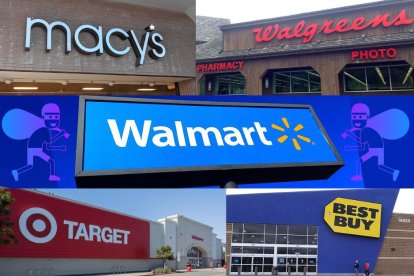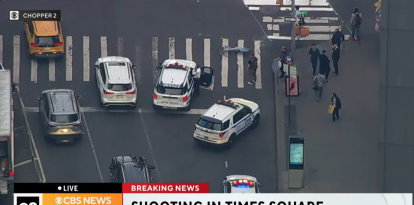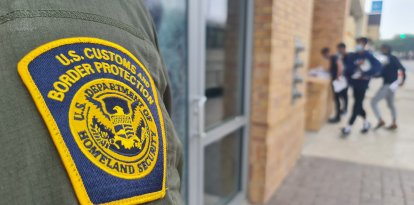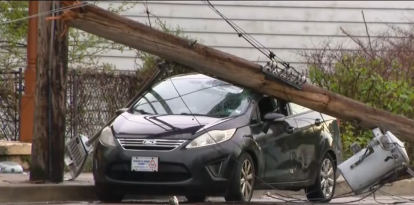Soft crime policies force dozens of retail stores to close
Walmart, Target, Best Buy and other companies warn that they will close more stores if thefts affecting the safety of their employees and customers are not reduced.

Voz Media (Wikimedia Commons / JJBers - Flickr / Canva)
Major retailers across the country, such as Walmart, Target, Best Buy and others, have been forced to close the doors of dozens of their stores this year after being robbed repeatedly.
Many of these companies warn that they will close more establishments if vigilance is not increased and the number of crimes is not reduced. In addition to this, self-checkout has also made it easier for people to leave stores without paying for their items.
Companies suffer losses in the billions
In 2021, retailers lost a total of $94.5 billion to theft, according to last year's National Retail Security Survey.
One of the main factors influencing this trend was the soft-on-crime policies pushed by progressive district attorneys in cities such as Chicago, New York, Portland and San Francisco. There, measures were implemented not to prosecute offenders who steal less than $950, and those who commit minor offenses are released and only punished with a slap on the wrist.
About 35 retail stores have closed in The Golden State, 23 in New York and 18 in Illinois. According to DailyMail, among the top retailers closing their doors are:
Walmart
Last December, Walmart CEO Doug McMillon declared that theft at its stores was the highest among all similar companies in the country. He warned that if this did not decrease, they would be forced to close locations. Following this warning, the retail giant announced the closure of 17 of its stores in nine states.
Among the most relevant closures were those of half of its stores in Chicago, almost all of them located on the south and west sides of the city. The main reasons were that the stores "had not been profitable" after the millions of dollars in losses each year, even after efforts to improve the situation. Walmart also closed its last two stores in Portland due to significant losses.
The retail giant has also closed or will close stores in Washington, Minnesota, Wisconsin, Indiana, Hawaii, New Mexico, Atlanta, Illinois and Arkansas.
Target
Last November, Target revealed that it lost $400 million due to merchandise theft from its stores. In one estimate, the company expected theft to reach $600 million by the end of this year.
Currently, the retailer announced the closure of four stores in Baltimore, Minnesota, Pennsylvania and Virginia in the coming months. A spokesperson commented that "the decision to close one of our stores is not something we take lightly."
Walgreens
Walgreens invested a large amount of money in implementing new security measures at its stores, including the hiring of additional security guards. CFO James Kehoe stated that in 2022 they saw theft figures equivalent to "3.5% of sales."
Five of its stores have closed in San Francisco alone. In some of them, thieves were filmed leaving the premises with piles of stolen goods while security guards remained indifferent. This year, Walgreens closed one store in Chicago, three in Texas and two in Florida.
Macy's
Macy's will close four stores in the first quarter of 2023 in California, Colorado, Hawaii and Maryland. The closures are part of the company's three-year plan to shut down 125 facilities due to an increase in theft that is cutting into the company's profits. CEO Jeff Gennette stated that they have experienced an increase in theft and that the company is joining the "industry-wide trend":
Gennette also announced the implementation of new anti-theft measures to try to reduce crime levels and monetary losses. The company now uses special identification tags to accurately track its inventory and has hired additional security guards.
Best Buy
Best Buy CEO Corie Barry highlighted the growing problem of shoplifting at their stores in November 2021. The retailer sells very high-value, but small-sized devices. This makes them a prime target for thieves.
Barry said that organized crime groups steal entire shelves of high-value products, mostly electronics, to resell them at a reduced price:
The company implemented measures such as hiring additional security personnel to minimize theft and protect staff and customers. However, it revealed that it would close 20 stores this year as losses mounted. This comes along with its previous plans is to close an average of twenty stores each year in the future.
RECOMMENDATION





















